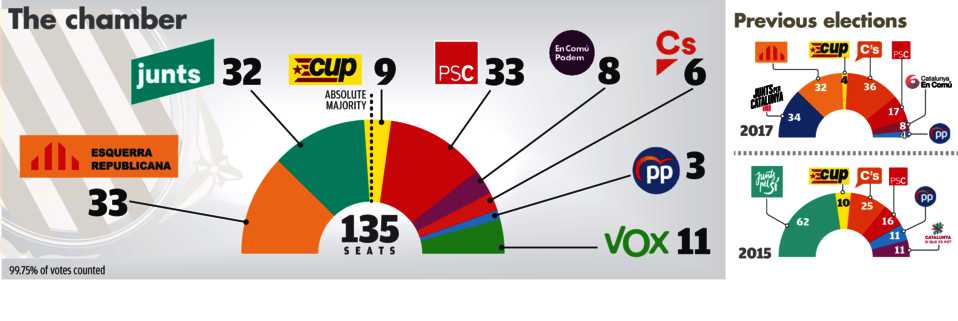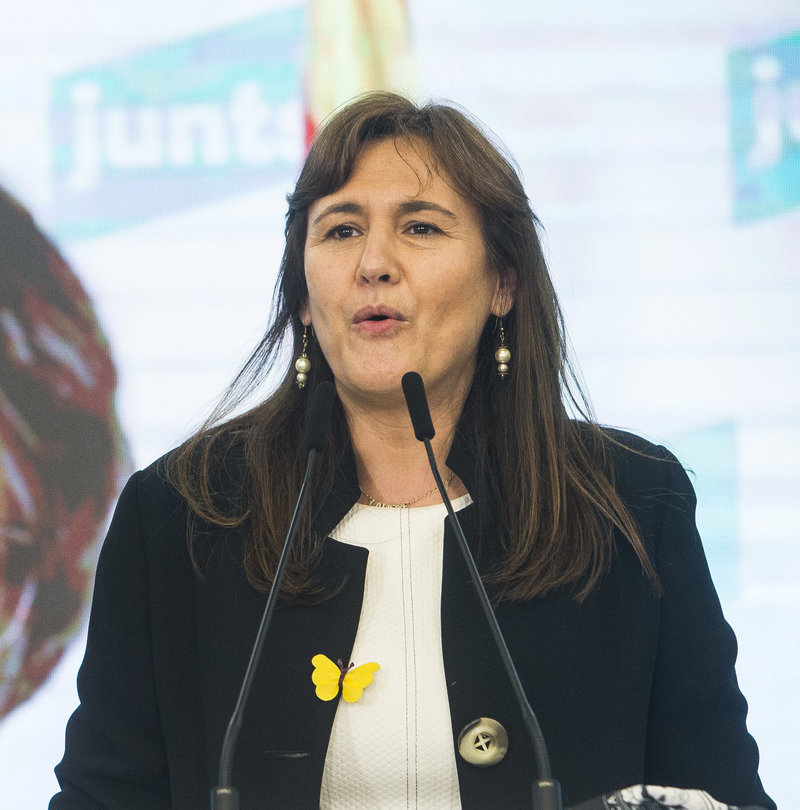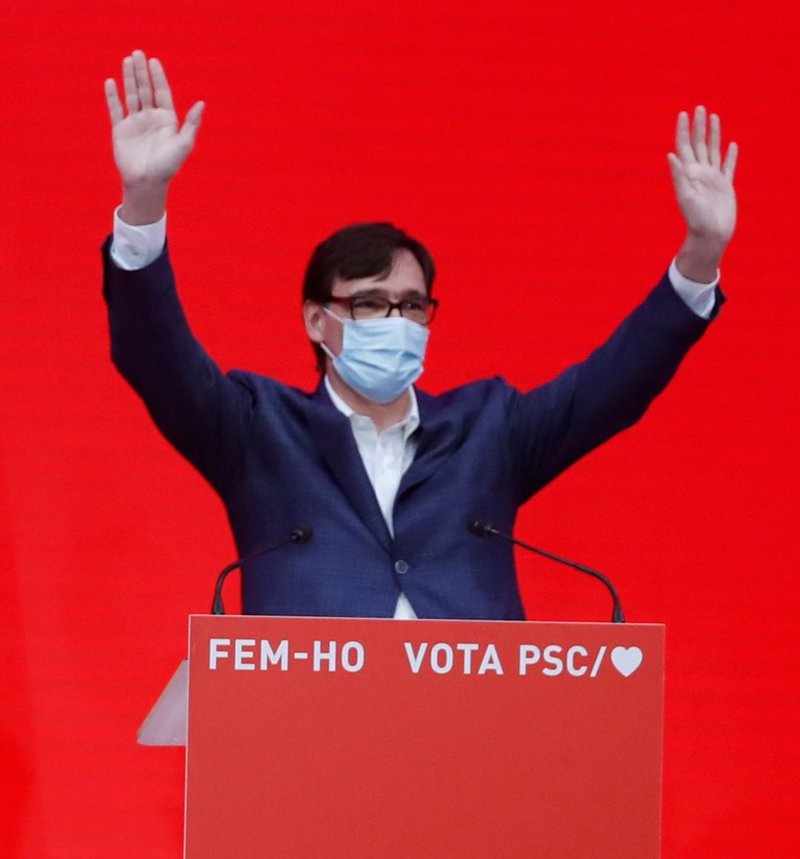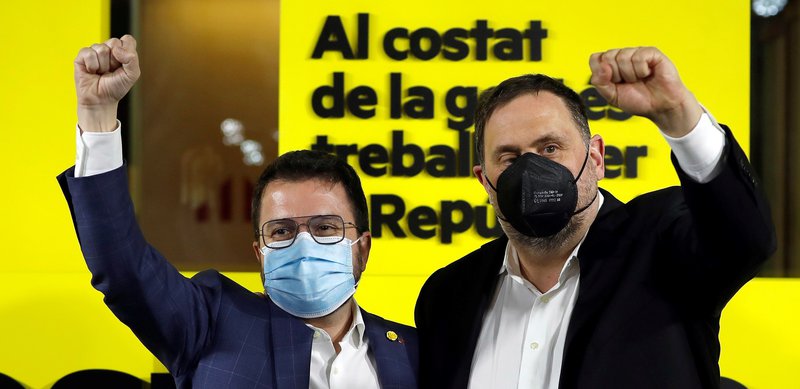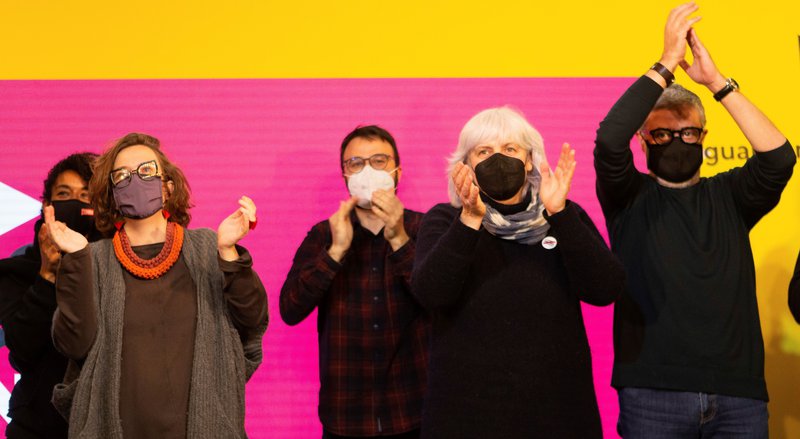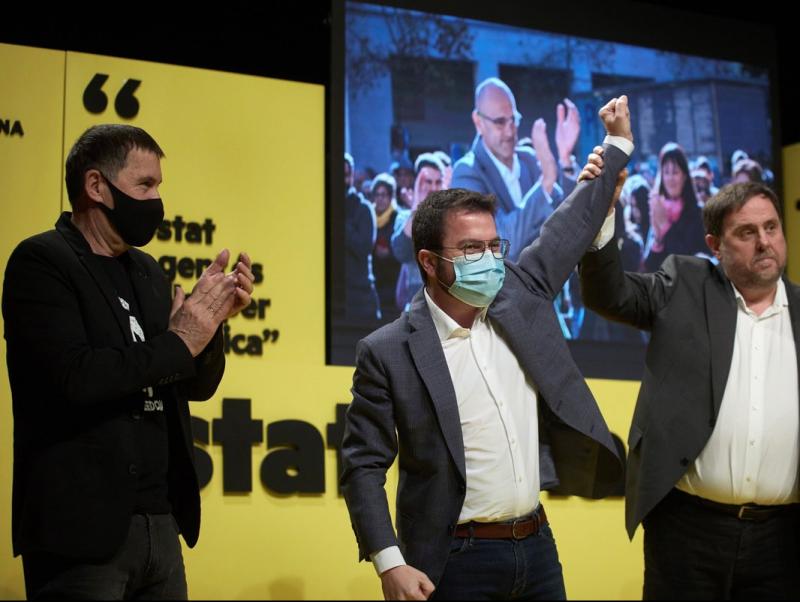Election sees record win for pro-indy bloc
ERC, Junts and CUP together claim historic 74 seats in the Catalan parliament, with all pro-independence votes exceeding 50% for the first time. The Catalan Socialists get the most votes of any party, but are unlikely to be able to form a government
Those who had given the independence movement up for dead were in for a surprise when the results of the Catalan election on February 14 were announced. The political parties in the Catalan parliament that support independence saw their overall majority go up from the 72 seats they won in 2015 and 2017 to a record 74 seats. With 68 seats required for a majority in the chamber, the pro-independence parties now have the option of forming another coalition Catalan government.
The pro-independence parties together also won the popular vote, exceeding 50% for the first time, if the votes of PDeCAT, Primaries, FNC and MCR – despite them not getting any seats – are added to those of the main parties, ERC, Junts, and CUP. Meanwhile, the pro-independence parties were the clear winners in the provinces of Girona, Tarragona and Lleida, although the PSC Catalan Socialists won in Barcelona, mostly at the expense of Ciutadans (Cs).
Throughout the night, as the votes were counted, it was not clear whether the pro-independence leftwing republicans, ERC, or the Catalan Socialists, PSC, would come out as the official winners of the election. In the end PSC pipped ERC at the post, with 650,750 votes to 602,442 votes, with both parties winning 33 seats in the chamber. It was a big night for PSC, which almost doubled the 17 seats it obtained in the last election just over two years ago, winning in Barcelona, Badalona and L’Hospitalet de Llobregat, as well as recovering Catalan cities where they had not won for a long time, such as Mataró, where they last won some 18 years ago.
In fact, it was the first time in a Catalan election that the Socialists have won both the popular vote and the highest number of seats. However, given the potential joint pro-independence majority in the chamber, former minister in Madrid and PSC leader Salvador Illa will find it very hard to form any type of government. Even if PSC were to reach an agreement with the other unionist parties in the chamber, it would still not have the necessary majority to form a government. What’s more, PSC ruled out any sort of agreement on a leftwing government with ERC before the election because of the latter’s pro-independence stance.
Pro-independence bloc
Also gaining 33 seats, it was a night of celebration for ERC, which improved on the 32 it won in 2017. The party’s main candidate, Pere Aragonès, surpassed the results of his currently jailed party leader, Oriol Junqueras, in the last election, and Aragonés quickly announced his intention to put his name forward for president. This latest showing continues the rise in popularity of the leftwing republicans, the Catalan party that won the most seats in the Spanish parliament in the last general election, as well as being the most voted party in Catalonia in the last local elections.
As for the other main pro-independence party, Junts, it came out of the election with 32 seats, two less than in 2017. It is likely that ERC and Junts will again form a pro-independence government on the back of their majority in the chamber, as long as the far-left, pro-independence CUP party again lends them their votes. However, should that happen, there will be one change in a future Catalan government, as this time ERC will be the partner with the most seats, and a new president will therefore be chosen from among its ranks (most likely Aragonés), no doubt leaving Junts’ main candidate, Laura Borràs, out of the running for the top job.
As mentioned above, for ERC and Junts to be able to form another coalition government, they will again need the votes of CUP. There is every reason to believe that CUP will be willing to cooperate in making a pro-independence government possible, even if it again refuses to take part in the executive due to its ideological differences with the other two parties. CUP regained the ground it lost in the previous election, raising its number of seats in the chamber from four to nine, the same number it won in 2015. This election also marked an historic milestone for the far-left party, as for the first time it obtained representation in all four Catalan provinces. Meanwhile, this time PDeCAT is left out of the pro-independence bloc in parliament, after it failed to win any seats following its split from Junts.
The right loses ground
Another first in this election is the entry in the parliament for the first time of the far-right party, Vox, which makes its debut with 11 seats. However, those gains were at the expense of other parties on the right, with Cs losing 30 of the 36 seats it won in the last election, and PP dropping from four to three seats. Cs’ poor showing means that the party will now have crisis talks about its future and whether it keeps Carlos Carrizosa as its leader in the parliament.
Meanwhile, for leftwing party En Comú Podem, the fact that its Spanish wing is in a coalition government with the Socialists in Madrid did not seem to help it in this election, as it won the same eight seats as it did last time. The party’s leader in the house, Jéssica Albiach, immediately called for a leftwing coalition government with PSC and ERC. However, as mentioned, with PSC and ERC unwilling to deal with each other, that remains a very distant possibility. With talks between the main pro-independence parties underway in the days following the election, the most likely scenario is another pro-independence coalition government.
feature 14F Elections

